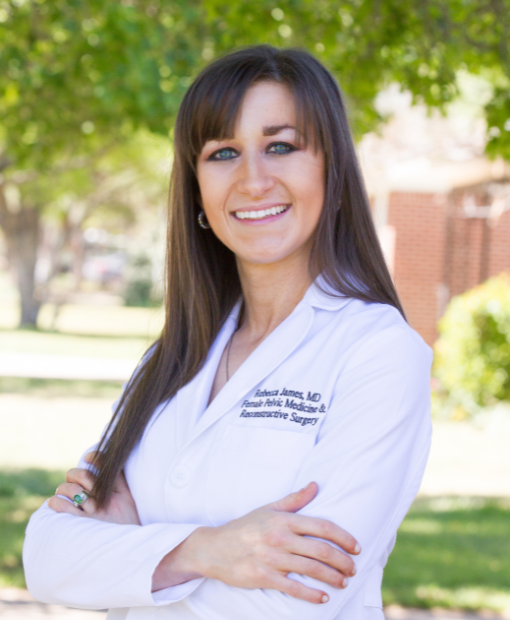
Rebecca James, MD, FACOG, uses her HDFS background to help local women in West Texas
Rebecca James, MD, FACOG, graduated in 2005 with a degree in Human Development and Family Studies, now referred to as Human Development and Family Sciences (HDFS). She then graduated from Texas A&M College of Medicine in 2009 and completed an OBGYN residency at Case Western Reserve University in Cleveland, Ohio before becoming board certified in 2013. She finally completed her fellowship and received her second board certification in 2016 in Female Pelvic Medicine and Reconstructive Surgery.
James now works as a double-board-certified Female Pelvic Medicine & Reconstructive Surgeon (FPMRS). James explains that her work is a subspecialty beyond gynecology, requiring a 3-year fellowship after completing her OBGYN training. According to James, there are a limited number of specialists in this field for the United States, so there are many areas currently underserved.
“My field helps women with pelvic organ prolapse, urinary and fecal incontinence, urethral diverticula and masses, pelvic pain—including painful bladder syndrome—defecatory dysfunction, and urinary tract infections,” James said. “I am the only fellowship-trained and board-certified FPMRS between El Paso and Dallas, with my practice in Midland and Odessa, Texas.”
From an early age, James knew she wanted to be a physician. She knew she needed to select a major that aligned with her prerequisites for medical school, but wanted a unique focus to set herself apart from traditional science majors. James’ mother is also a Texas Tech and College of Human Sciences alumna, so she was encouraged by her mother to review programs in the college.
“Human Development and Family Sciences seemed appealing with the focus on the psychology and dynamics of the various stages of human life,” James said. “It made sense that this focus would help in caring for others medically.”
The HDFS program focuses on the science of development across the lifespan, with an emphasis on relationships. Students gain a dynamic understanding of individuals and families as well as needed communication skills vital to patient care. James said the information learned in the program continues to help her in her current role as a surgeon.
“HDFS gave me a strong background in social sciences and psychology, all of which are critical in medicine and working with people in general,” James said. “I am still able to recall helpful facts from my major daily in my medical practice.”
She treats many ages in her field of FPMRS, from adolescence to the geriatric ages. With a strong foundation of human development undergraduate courses and knowledge learned in medical school, James says she is able to provide effective care for women.
“Knowledge of the developments and perspectives of these stages of life helps me form successful treatment plans that will be appropriate and meaningful for all of these women,” James said.
